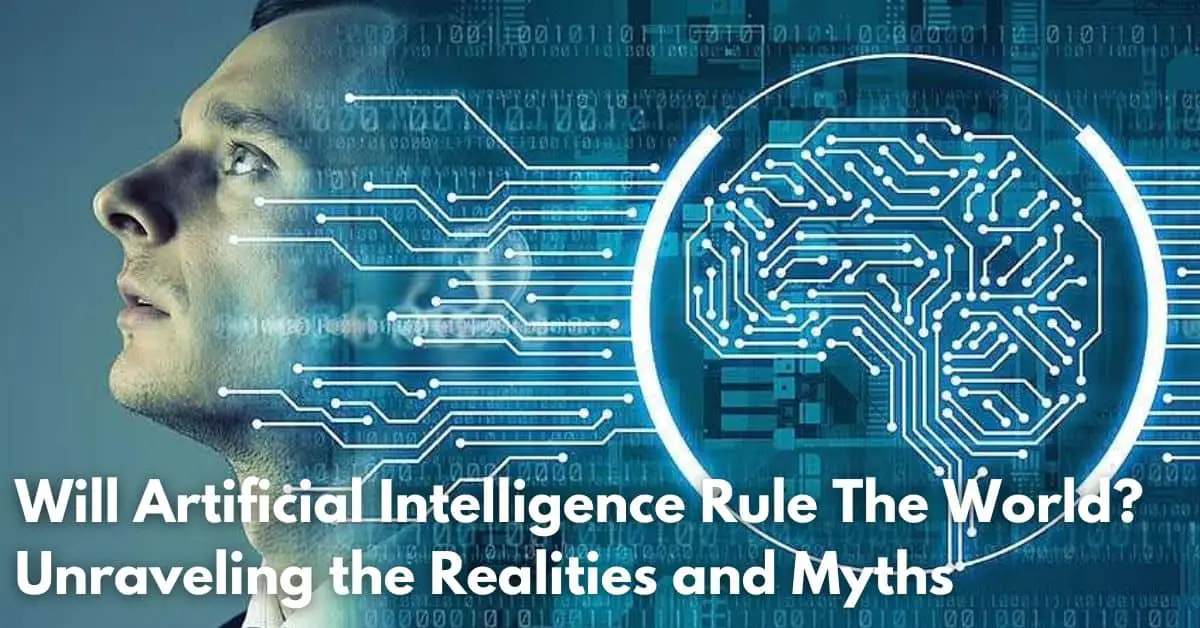The notion of Artificial Intelligence (AI) ruling the world has long been a topic of fascination, fueled by science fiction narratives and sensationalized headlines. While AI indeed holds immense transformative potential, the idea of it “ruling” the world requires a nuanced examination of the current state of AI, its limitations, and the ethical considerations surrounding its deployment.
The Current State of AI: Reality vs. Fiction
As of now, AI is a powerful tool with diverse applications, ranging from automating routine tasks to facilitating complex decision-making processes. However, it is crucial to dispel the notion that AI possesses autonomy or consciousness. AI systems operate based on algorithms and data, lacking true self-awareness or independent thought.
The fear that AI will “rule the world” often stems from the portrayal of sentient, all-powerful machines in popular culture. In reality, AI systems are designed and controlled by humans, programmed to perform specific tasks within predefined parameters. The development of AI is guided by ethical frameworks, legal regulations, and oversight to prevent misuse and ensure responsible deployment.
The Limitations of AI: Contextual Understanding and Creativity
AI excels in tasks that involve pattern recognition, data analysis, and optimization. However, it faces challenges in areas that require nuanced contextual understanding and creative problem-solving. While AI can process vast amounts of information, it lacks the inherent human ability to comprehend complex social dynamics, emotions, and cultural nuances.
For AI to “rule the world,” it would need to surpass not only its current technological limitations but also navigate the intricacies of human society and consciousness. As of now, AI remains a tool that augments human capabilities rather than a self-governing entity.
Ethical Considerations: Ensuring Responsible AI Deployment
As AI technologies advance, ethical considerations become paramount. Ensuring that AI is deployed responsibly and ethically involves addressing issues such as bias in algorithms, privacy concerns, and the potential societal impact of AI-driven decisions. Ethical guidelines and regulatory frameworks are being developed globally to guide the ethical development and deployment of AI.
The fear of AI “ruling the world” often reflects concerns about the concentration of power and decision-making in the hands of machines. However, the responsibility lies with humans to establish ethical guidelines, transparency, and accountability in the development and use of AI technologies.
Collaboration Between Humans and AI: The Path Forward
Rather than envisioning a future where AI dominates, a more realistic and constructive perspective is one of collaboration between humans and AI. AI systems, when designed and used ethically, have the potential to assist humans in addressing complex challenges, from healthcare and climate change to education and beyond.
The future of AI should be shaped by collaborative efforts that prioritize transparency, inclusivity, and shared decision-making. As AI continues to evolve, it is essential for society to actively engage in discussions about the ethical and societal implications of AI deployment.
In conclusion, the idea of Artificial Intelligence ruling the world is more rooted in science fiction than in current technological realities. While AI is a powerful tool with transformative potential, it lacks the autonomy and consciousness attributed to it in fictional narratives. The responsible development and deployment of AI, guided by ethical considerations and human oversight, are crucial in shaping a future where AI and humanity collaborate for the greater good. Rather than fearing AI, it is more productive to focus on leveraging its capabilities to address societal challenges while ensuring ethical safeguards are in place.







